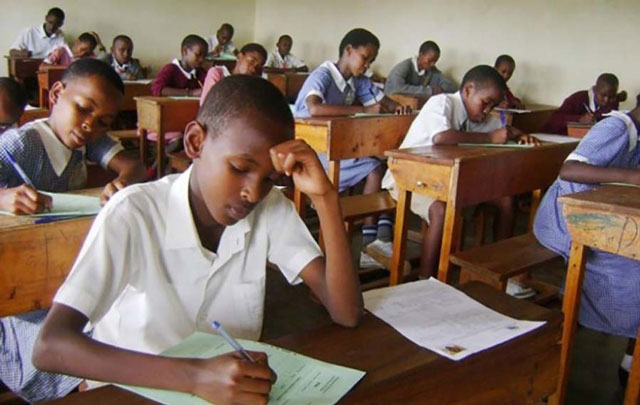
Kampala, Uganda | THE INDEPENDENT | Several Ugandans are calling for the scrapping of Primary Leaving Examinations-PLE, vocationalisation of primary education, and overhauling of the assessment framework.
The proposals are part of the hundreds of documents that have so far been received by the Education Policy Review Commission which was instituted to inquire into the effectiveness and relevance of the current education policy to the achievement of the education needs of users.
A few weeks ago, the commission made a public call to all stakeholders to participate in the education policy review process by way of submitting written memoranda of one’s views, comments, and proposals on the necessary Education and Sports Sector Policy and Legal Reforms.
Information obtained by our reporter indicates that many written views and proposals have pointed to the removal of PLE. Dr. Denis Mugimba, the Ministry of Education spokesperson confirms the development noting that many people question the relevancy of this national examination.
This is not the first time this idea is being fronted. It was first published in World Bank’s 13th Edition of the Uganda Economic update report, recommending to the Uganda government to scrap the Primary Leaving Examinations (PLE) and implement the policy on automatic promotion. However, this proposal received mixed reactions from Ugandans with a section of educationists advising the government to think twice on the matter.
Besides scrapping PLE, the majority of the submissions have also asked the government to introduce vocational studies in primary education.
“Vocationalisation is turning up as another critical issue. Ugandans want TVET competence to be introduced as early as primary instead of introducing them to learners when they are in technical institutions. According to the submissions, Ugandans think that even if one drops out at any level, he would have acquired some skills,” a source with access to the proposals told Uganda Radio Network.
Vocationalisation of education if adapted will not be a new concept. It is one of the more than 202 recommendations made by the 1987 Prof William Ssenteza Kajubi commission and put in the government white paper but was not implemented.
In a recent interview, Dr. Yusuf Nsubuga, the former director of basic education who is also a member of the education policy review commission noted that the ministry failed to get funding for this component in addition to the poor mindset on vocational studies among Ugandans back in time.
“I believe it’s a viable issue that our education system needs to tackle immediately,” Dr. Nsubuga noted, giving an example of his son who got employment before finishing his formal education just because was good at cooking as a skill.
Conversely, members of the public have been proposing that the government change the current assessment framework and limit the power of the national examination as the major determinant of who has passed and failed.
The issue has been in public debate for years with many people wondering how a learner’s four or seven years of education at a given level can be determined by an examination sat in two or three hours. As a result, the ministry of education had started formalizing the concept of continuous assessment beginning with the new lower secondary curriculum.
Christopher Muganga, the Deputy Director in charge of research and consultancy at NCDC, says that although currently class-based continuous assessment is accounting for 20 percent of the final national examination. with time the percent will be raised to 50.
However, the proposals are suggesting that this be considered at all levels of education and also put emphasis on the neglected subjects in the curriculum to break the dominance of the core subjects more so at the primary level.
Dr. Mugimba says that the commission is still receiving more proposals before handling oral sessions. However, in a meantime they have also decided to write to 800 individuals and institutions whom they think should also be captured. According to Mugimba, the group includes policy experts, education managers, renowned educationists, foundational bodies, employers among others.
After receiving the written submissions, the commission will next month hold an oral session where the submission will be debated by the public and thereafter validated for consideration.
Dr. Mugimba says that, unlike the Kajubi commission which made hundreds of recommendations, this time around the commission intends to make few implementable recommendations.
Among the issues, the commission is supposed to inquire into and investigate is the implementation of the recommendation in the Government White Paper on Education of 1992. The commission will also investigate and inquire into the issues of policy, planning, funding, access, implementation, and legislation across the education and sports sub-sector.
*****
URN
The post Scrapping PLE tops proposals submitted to Education Review Commission appeared first on The Independent Uganda:.
from The Independent Uganda: https://ift.tt/YCukQgl
0 Comments